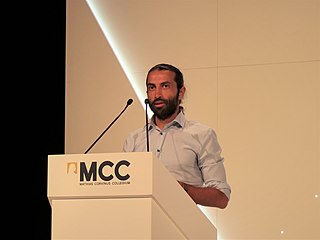A Quote by Anubhav Sinha
When I started my career in television, there was a certain type of stories that were told. Who would have thought that one day I would get a chance to make a film on a story that is based on nothing, just a slap - a habit or practice that has been normalized for so long that if the woman gets upset over it, society says she is 'over-reacting.'
Related Quotes
There was a time when I first started that there was such a thing called 'a woman's film' and there were certain scripts that women would make. But I think that's changed a lot now. I think that if a woman director walks into a room with a script, it doesn't really matter what the subject matter is, or the genre is, so long as the financers feel that the woman has the skills to make the film.
Well, I think there was a time when I first started that there was such a thing called 'a woman's film' and there were certain scripts that women would make. But I think that's changed a lot now. I think that if a woman director walks into a room with a script, it doesn't really matter what the subject matter is, or the genre is, so long as the financiers feel that the woman has the skills to make the film.
We started on the pole but by Lap 150 we were ninth or 10th and we were struggling. The car was sliding around a lot, but I did not get upset. I just said, 'Let's just keep working hard.' Last year, I would have been so upset about getting passed by those cars I would have been overly aggressive and would have worn our tires out. You can't do that in a 500-mile race if you want to be strong at the end.
I asked myself what Palestinians would do if Israel disappeared-if everything not only went back to the way it was before 1948 but if all the Jewish people abandoned the Holy Land and were scattered again. And for the first time, I knew the answer. We would still fight. Over nothing. Over a girl without a head scarf. Over who was toughest and most important. Over who would make the rules and who would get the best seat.
I can tell you one other story about Rent Control. The lead actress in the film, her name was Elizabeth Stack, and it turned out she was Robert Stack's daughter. The only problem with that - and she was lovely - was that she was basically hired because [Gian Luigi Polidoro] thought she was [film producer] Ray Stark's daughter. And he figured that if he ran out of money, her father would kick in some more. I can still remember the day he freaked out when he realized she was actually Robert Stack's daughter. He was just screaming "Untouchables!" over and over.
But the thought arrived inside her like a train: Marya Morevna, all in black, here and now, was a point at which all the women she had been met—the Yaichkan and the Leningrader and the chyerti maiden; the girl who saw the birds, and the girl who never did—the woman she was and the woman she might have been and the woman she would always be, forever intersecting and colliding, a thousand birds falling from a thousand oaks, over and over.
We worked all the time, just worked and then we would be hungry and my mother was clearing up a new ground trying to help feed us for $1.25 a day. She was using an axe, just like a man, and something flew up and hit her in her eye. It eventually caused her to lose both of her eyes and I began to get sicker and sicker of the system there. I used to see my mother wear clothes that would have so many patches on them, they had been done over and over and over again. She would do that but she would try to keep us decent.
It's interesting to me because theater is, on any given day, 10,000 times harder than film and television. And that's not to say film or television can't be hard or challenging; it's emotional to do the same thing over and over and over. But in terms of stamina, there is nothing like an eight-show week to separate the men from the boys.
When I first started making films 30 years ago, people would comment that I was a woman. But strangely, when I was in television, no one ever mentioned that I was a woman. Maybe it was because television and film were different. There were more women working in television than men. There was no split in terms of work - everyone was considered equal
I went to see my mother the other day, and she told me this story that I'd completely forgotten about how, when we were driving together, she would pull the car over, and by the time she had gotten out of the car, and gone around the car to let me out of the car, I would have already gotten out of the car and pretended to have died.
When I was a young woman, I had this friend who was really beautiful, and she would talk about how she was losing her looks, that she wasn't as pretty as she once was. She was gorgeous, and I thought, I'm going to stop this bad habit of self-criticism that I think a lot of women get into. You make a choice to be different.
Others would say to me, 'It is only temporary, it will pass, you will get over it,' but of course they had no idea how I felt, although they were certain that they did. Over and over and over I would say to myself, If I can't feel, if I can't move, if I can't think, and I can't care, then what conceivable point is there in living?
I once wrote a short story called 'The Best Blues Singer in the World,' and it went like this: 'The streets that Balboa walked were his own private ocean, and Balboa was drowning.' End of story. That says it all. Nothing else to say. I've been rewriting that same story over and over again. All my plays are rewriting that same story.





































